Series: Focus on Play
How to Adapt Math Card Games to Children’s Skill Level
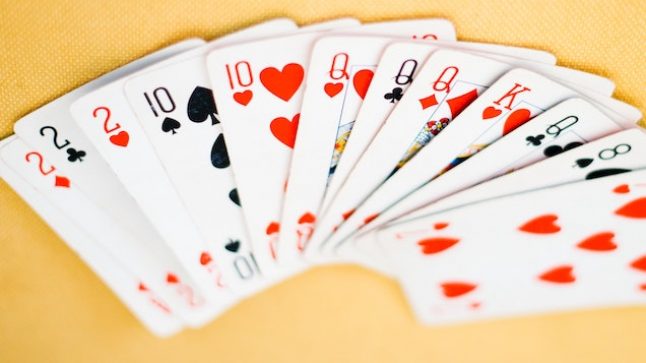
Card games provide meaningful practice of the basic number combinations. Becoming automatic with basic number combinations is the key to computational fluency. These common card games that children learn in school or at home can be revisited many, many times and can be adapted to children’s own math skills as they develop over time.
Go Fish!
Go Fish is a pair-seeking game. Players each have their own hand of 5 cards. Players ask their opponents for a card that pairs with a card in their own hand. Basic play begins with making matched pairs. For example, if you have a card with five dots you would ask you opponent for another card with five on it. If your opponent has the card, they give it to you, and then you keep asking for cards until your opponent does not have the card you request and says, “Go Fish!” You get to pick from the pile of face-down cards in the “fishpond.” If you make a match you continue. If not, it is the other player’s turn. The game continues until all the cards are paired up. Players count their pairs, and the player with the most pairs, wins the game.
Match ‘Em / Memory
Match ‘Em or Memory are similar pair-seeking games that allow you to adjust the memory challenge. In both games, cards are arranged in an orderly array on the floor or a table. In Match ‘Em, the cards are face up; in Memory, the card are face down. Players take turns finding pairs. The game is over when all the pairs are matched.
Capture
Capture is a comparison game also known by the traditional name of “War.” To play, deal the entire deck of cards among the players. Players show their cards at the same time, and the person with the greatest number wins the round and takes the cards. When the cards run out, the game is done, and players can count their cards to see who has the most cards.
Things to Consider
While all these games can be played with a standard deck of cards, you will want to give some thought to how you create a deck to match your child’s math skills. Some things to consider:
- Use quantity cards that show a pictorial representation of a number. This helps children develop their visual number sense as well as their computational fluency. Use our quantity card downloads or, when children are ready to explore multiplication, check out this resource from YouCubed.
- Start with cards 0-5 for preschoolers; 0-10 for kindergarten and first grader; 0-20 for second grade
- The size of the deck (number of cards in play) should be appropriate for children’s age and experience. Small hands can only hold a small hand of cards!
- Use small arrays of cards to play Match ‘Em or Memory at the start such as a 3 x 4 array of 12 cards. Arrange cards face-up or face-down to vary the memory challenge based on children’s age, experience playing, and the math skill they are working on. If it is a new concept, even for older children, face-up may be the way to play the first few times.
- Fewer cards in the deck means faster games that keep children’s attention. When games are quick, they can be played again and again, which eases the disappointment of losing.
Downloads
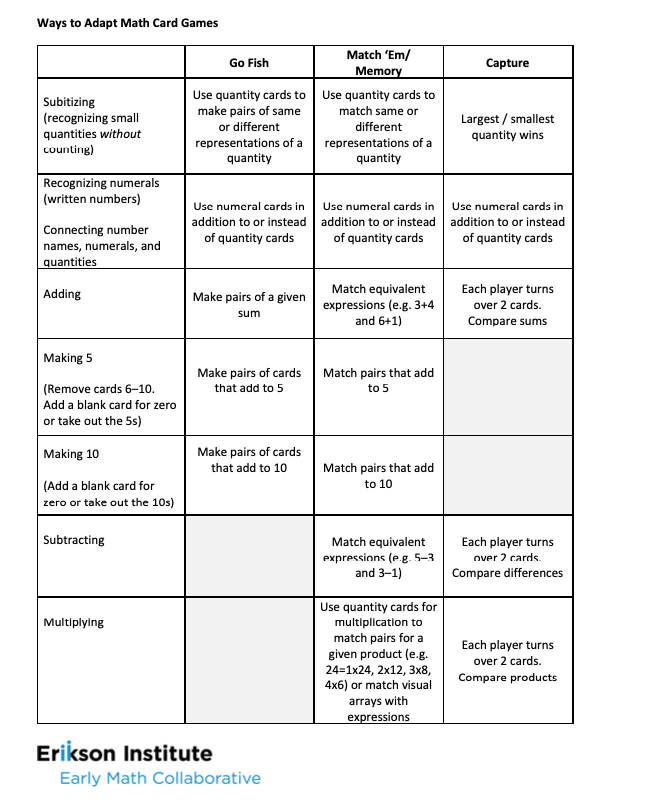
Adapting Math Card Games Chart
This download breaks down the variations of these games into a chart so that adapting them to children’s skills and ages can be easy to do.
Math Card Games Chart
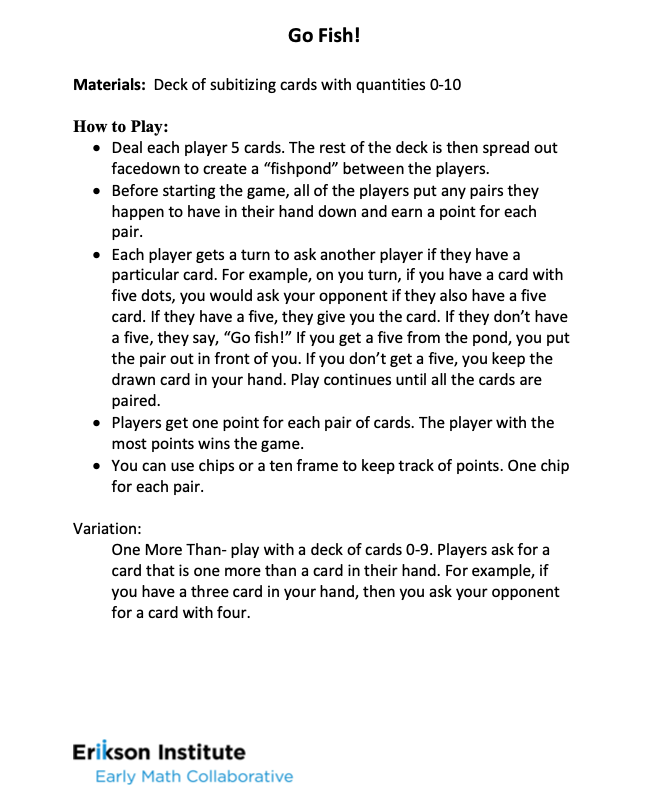
Go Fish Game
This download provides an easy take-home game so educators can provide parents with opportunities at home.
Go Fish Directions
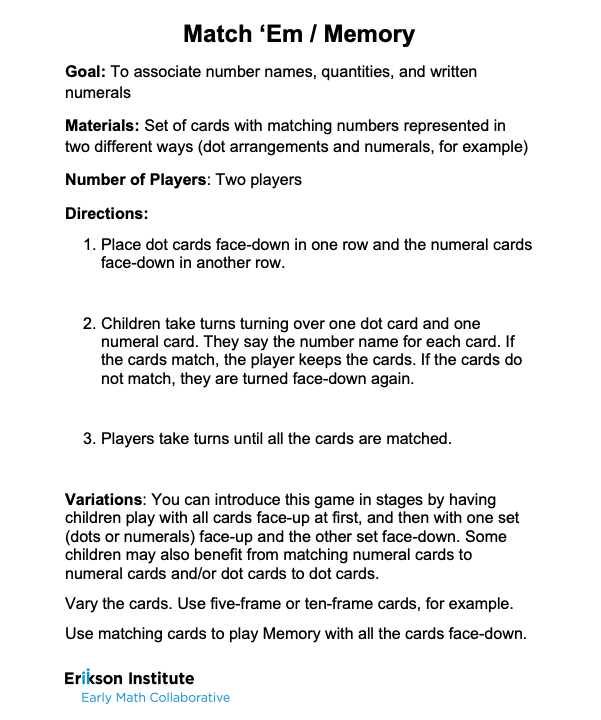
Match ‘Em All / Memory Game
This download provides simple instructions for playing cards at school and at home.
Match ‘Em All Game
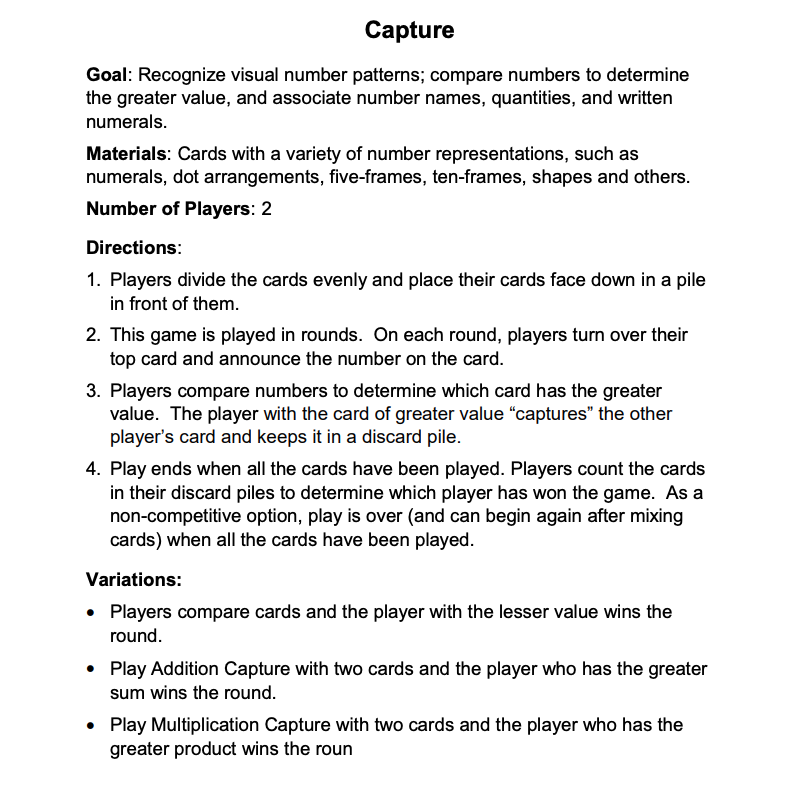
Capture Game
This download provides directions for the Capture card game, which is a variation on an old favorite. Learn how to vary the game to match your child’s math skills.
Capture Directions
Related Ideas
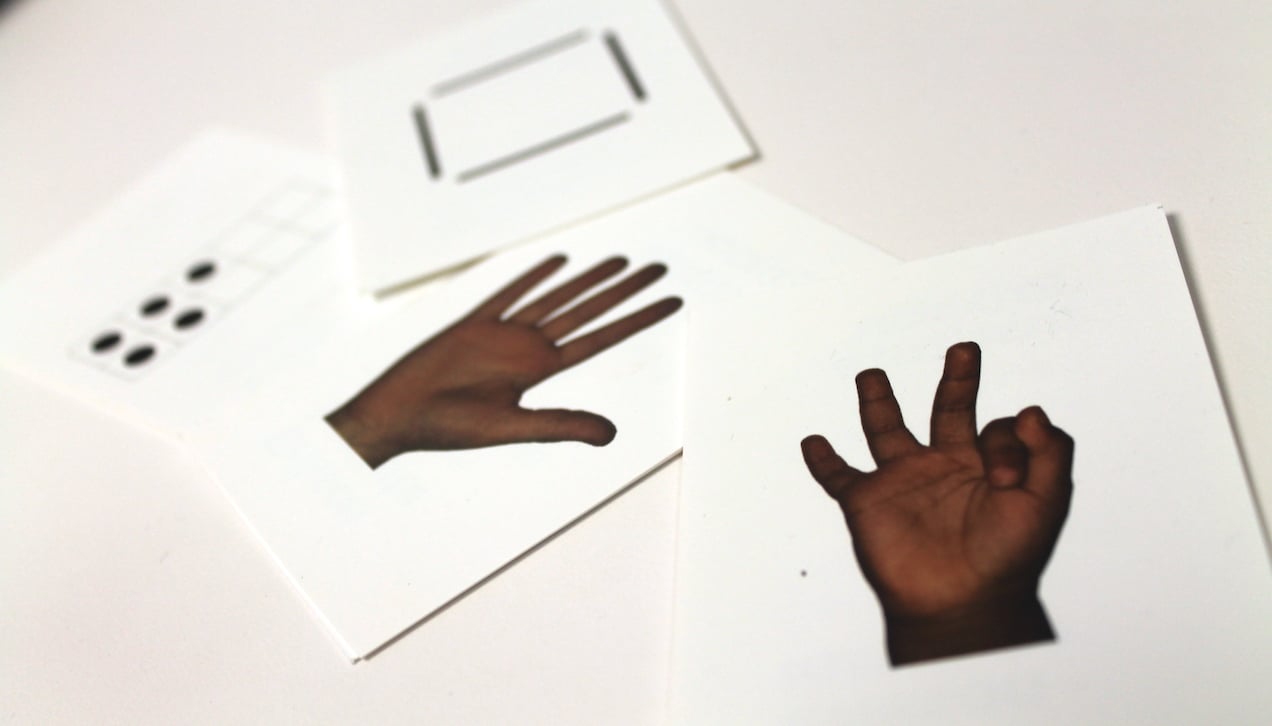
A New Focus for Familiar Card Games
Here you can learn much more about Quantity Cards and how they build an understanding of early math concepts such as cardinality and composing and comparing numbers.
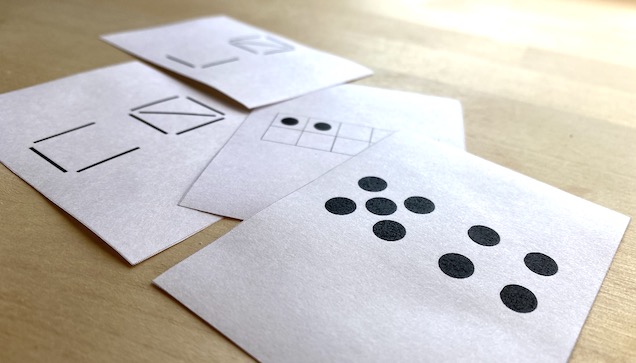
Quantity Cards
These Quantity Card downloads are available and cater to different skill levels and ages. They include a variety of pictures or “suits” since matching quantities such as fingers and dots can help develop ideas about numbers and equivalence.